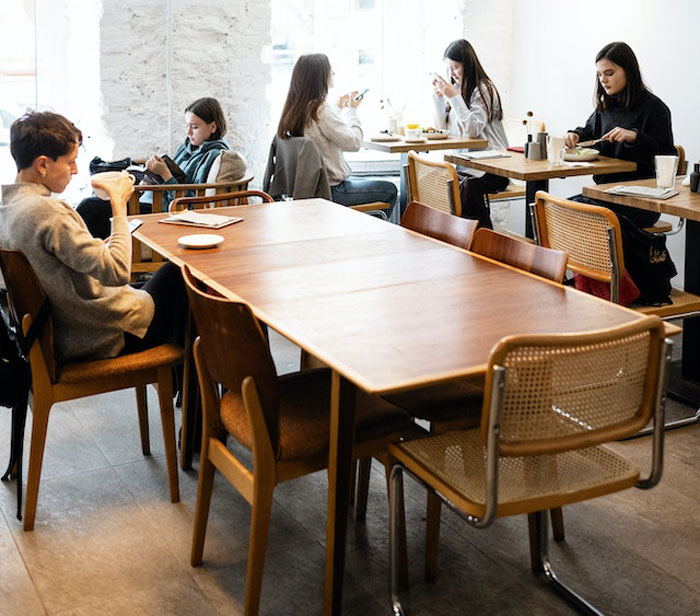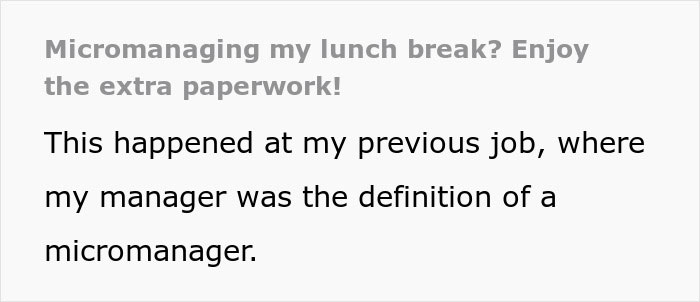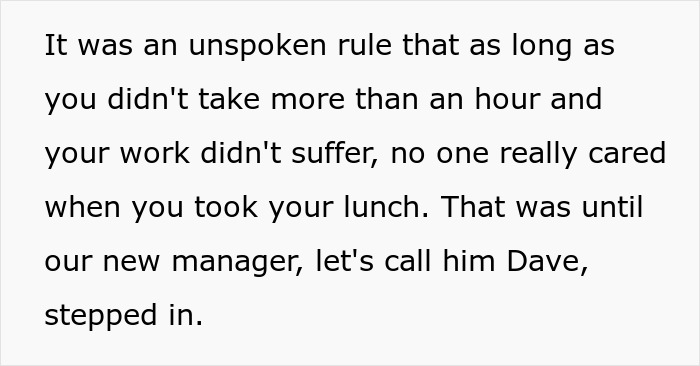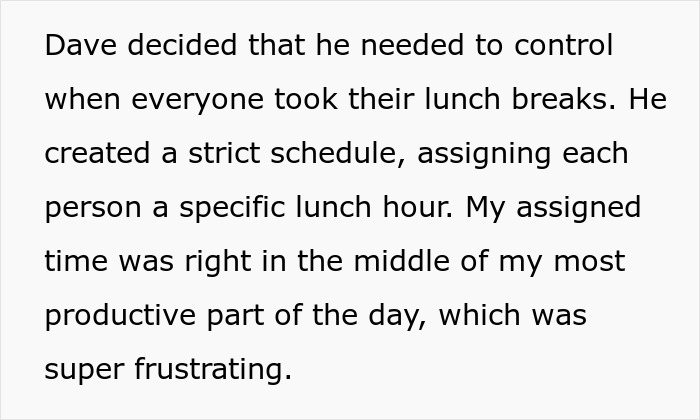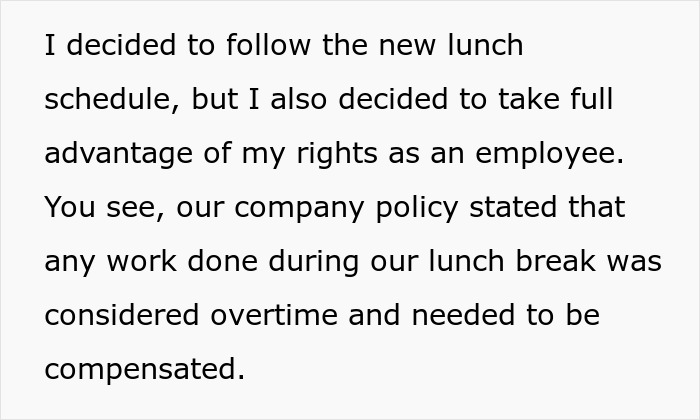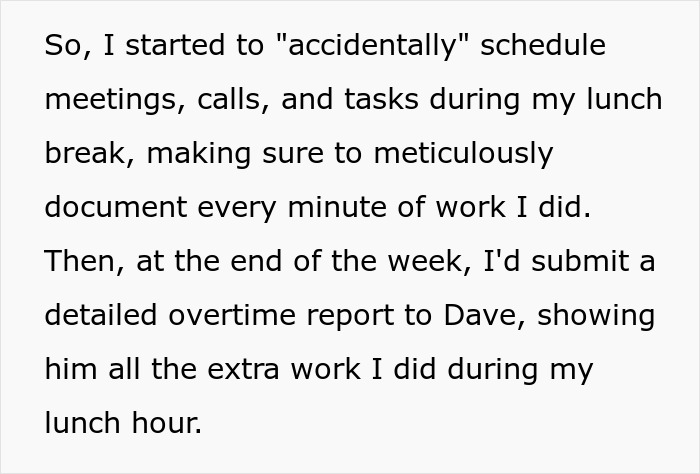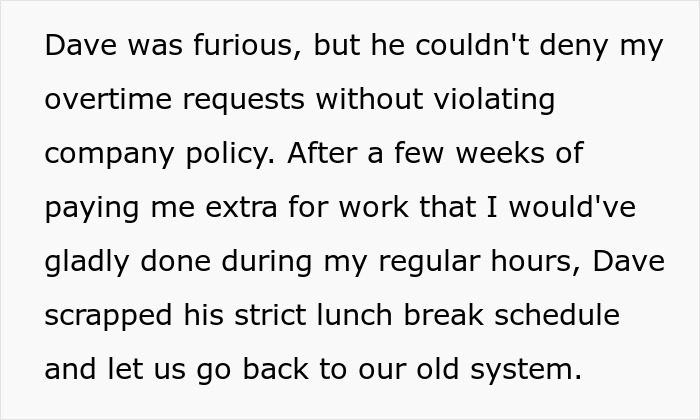
Boss tries to micromanage employees’ lunch breaks and pays them extra overtime
Someone recently shared an incident from a previous workplace that was run by the boss, the definition of a micromanager.
of Post with 11.8k upvotes In the Malicious Compliance community, a Redditor explained how new manager Dave stepped in to lead the team. After all, Dave was deeply dissatisfied with the fact that his employees took their lunch breaks as they please, within his hour and as long as the job allowed.
“Dave decided he needed to control when everyone took their lunch break,” the author said, so he had no choice but to viciously comply.
New boss just handles more paperwork and overtime billing in an attempt to micromanage employee lunch breaks
Image credit: Ksenia Chernaya (not actual photo)
Image credit: Arina Krasnikova (not actual photo)
Image credit: Critical Depth 420
Studies show that taking a lunch break benefits employee productivity and happiness, but many people are hesitant to take it
While numerous studies have shown how lunch breaks help employee performance, this study found that not only did lunch breaks become shorter, but many employees were judged by taking lunch breaks. It became clear that he was afraid of
take back lunch The survey results are Employees who take their lunch break show higher levels of engagement than those who don’t. What’s more, he found that 94% of employees feel happier when they take a lunch break.
However, the findings from lunch report A quarter of Gen Z and millennial workers said they were worried about taking lunch breaks because they were worried about what their boss would think.
Similarly, 21% of employees say they don’t have time to take proper breaks, and 19% say they have too many meetings or tend to meet during their lunch break.
Federal law does not mandate lunch or coffee breaks, but it is common practice for companies to provide meal times for employees, although they are usually unpaid.
Federal law does not mandate lunch or coffee breaks, according to the U.S. Department of Labor. However, if an employer provides a short break (usually lasting about 5 to 20 minutes), federal law considers the break to be compensable working hours included in the total work week and determines whether overtime was worked. Consider when making decisions.
On the other hand, an unauthorized extension of an authorized break requires that the employer expressly and clearly state that the authorized break may last for a specified amount of time and that the extension of the break is against the Labor Standards Act. If you tell your employees, it doesn’t have to count as hours worked. Employer rules, and extended breaks are penalized.
Mealtime, on the other hand, which usually lasts at least 30 minutes, serves a different purpose than a coffee or snack break and is therefore not working time and therefore not covered.
